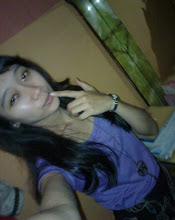REFERENSI :
English grammar-stacy A. hagen
Modern English-marcella frank
english grammar-angela downing
Modul bahasa inggris-swastanto wahyu S.Pd
Panduan pendalaman materi bahasa inggris-Eneng sinarti S.Pd
Catetan selama pembelajaran
Countable Nouns
Countable nouns are easy to recognize. They are things that we can count.
Countable noun adalah kata benda yang dapat dihitung.
Example :
dog, cat, animal, man, person
bottle, box, litre
coin, note, dollar
cup, plate, fork
table, chair, suitcase, bag
Countable noun : 1.Singular (tunggal)
2.Plural (jamak) biasanya dengan penambahan ‘s atau ‘es pada bentuk tunggalnya
Example :
Book-books
Pen-pens
Watch-watches
Table-tables
Chair-chairs
Cup-cups
Loss-losses
Key-keys
City-cities
Baby-babies
Countable nouns can be singular or plural:
My dog is playing.
My dogs are hungry.
We can use the indefinite article a/an with countable nouns:
A dog is an animal.
When a countable noun is singular, we must use a word like a/the/my/this with it:
I want an orange. (not I want orange.)
Where is my bottle? (not Where is bottle?)
When a countable noun is plural, we can use it alone:
I like oranges.
Bottles can break.
We can use some and any with countable nouns:
I've got some dollars.
Have you got any pens?
We can use a few and many with countable nouns:
I've got a few dollars.
I haven't got many pens.
"People" is countable. "People" is the plural of "person". We can count people:
There is one person here.
There are three people here.
Uncountable Nouns
Uncountable nouns are substances, concepts etc that we cannot divide into separate elements. We cannot "count" them.
Uncountable noun adalah kata benda yang tidak dapat dihitung, jenis kata benda yang tidak mempunyai bentuk jamak.
Example :
Air,milk,salt,paper
music,art,love
advice, information, news
furniture, luggage
rice, sugar, butter, water
electricity, gas, power
money, currency
Dan yang dijadikan bentuk jamak adalah ukurannya atau takarannya (quantifier-nya)
Example :
Two glasses of water
Five tins of butter
Three plates of rice
Two slices of bread
Five bottles of milk
We usually treat uncountable nouns as singular. We use a singular verb. For example:
This news is very important.
Your luggage looks heavy.
We do not usually use the indefinite article a/an with uncountable nouns. We cannot say "an information" or "a music". But we can say a something of:
a piece of news
a bottle of water
a grain of rice
We can use some and any with uncountable nouns:
I've got some money.
Have you got any rice?
We can use a little and much with uncountable nouns:
I've got a little money.
I haven't got much rice.
Selasa, 05 April 2011
Countable & uncountable Nouns
Diposting oleh SHINTA MULYANA di 04.08
Langganan:
Posting Komentar (Atom)

0 komentar:
Posting Komentar